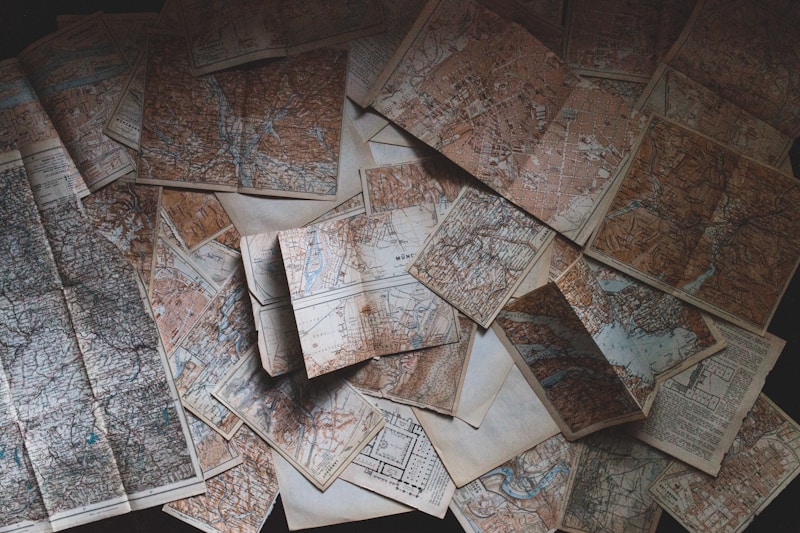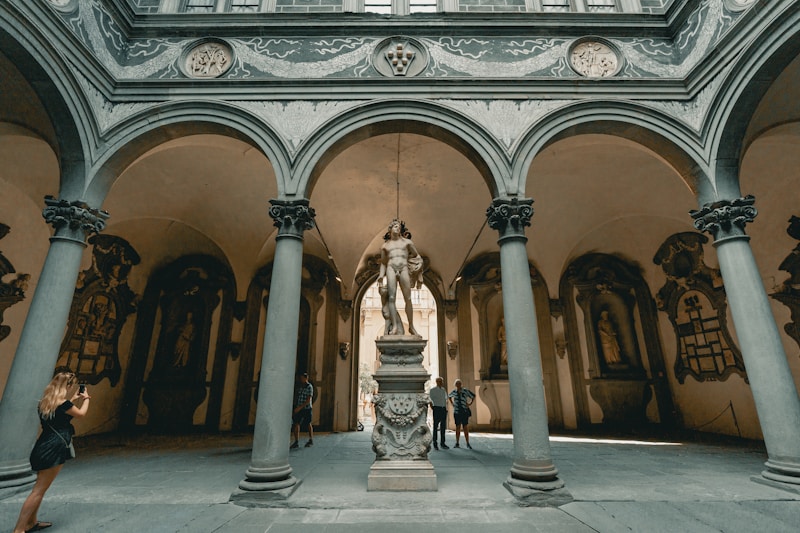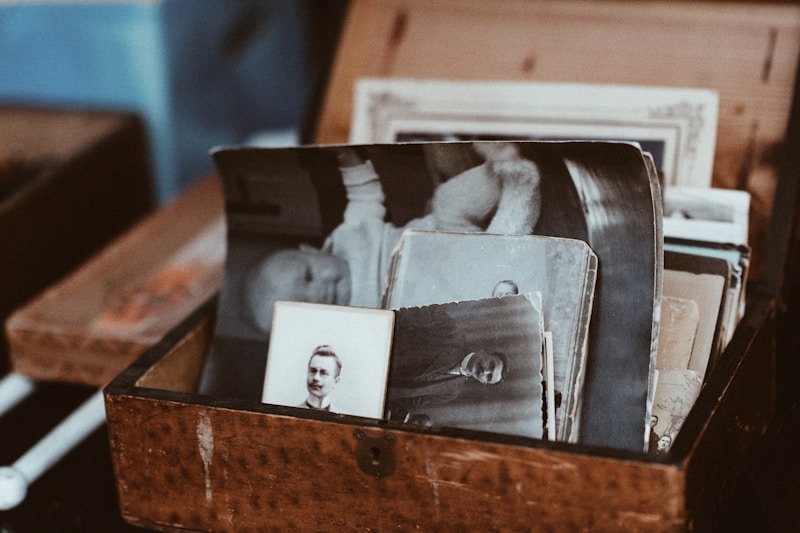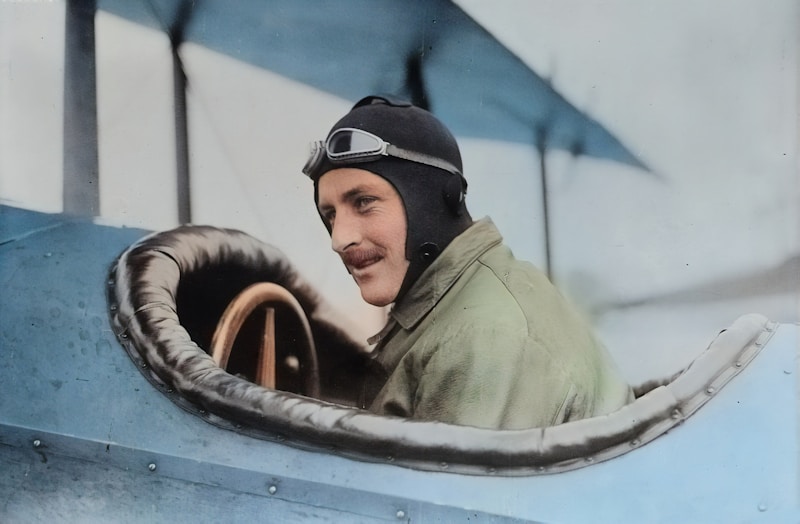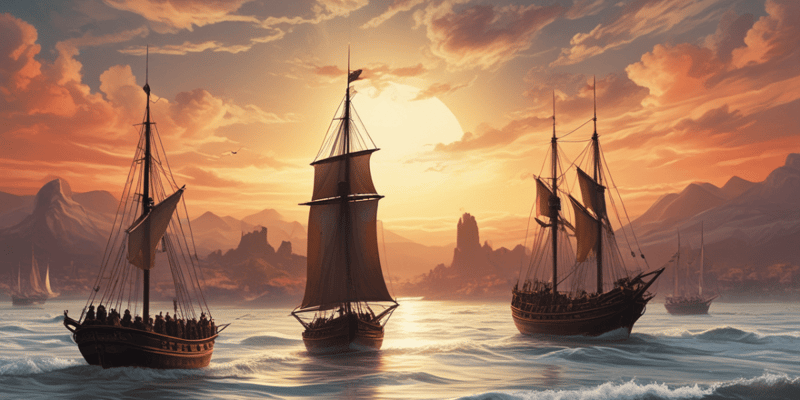Questions and Answers
What period marked the beginning of modern history?
The Renaissance
When did the Age of Exploration take place?
15th to 18th century
Which era saw the emergence of new ideas, innovative scientific discoveries, and a renewed interest in classical literature and art?
The Renaissance
Who is known for discovering the New World in 1492?
Signup and view all the answers
What was a characteristic of the Renaissance period?
Signup and view all the answers
In which period did European powers attempt to expand their empires through exploration and colonization?
Signup and view all the answers
What marked a significant shift in human understanding of the natural world in the 16th century?
Signup and view all the answers
Which philosophical movement emphasized reason, individualism, and the power of the individual to shape society?
Signup and view all the answers
Which era saw the development of new manufacturing technologies and the rise of factory-based production?
Signup and view all the answers
What marked the beginning of modern history according to the provided text?
Signup and view all the answers
Which era was characterized by two major world wars that had a profound impact on global politics and international relations?
Signup and view all the answers
During which period did Europe see an emphasis on reason, individualism, and new political ideas such as democracy and protection of individual rights?
Signup and view all the answers
In which era did tensions between the United States and the Soviet Union lead to the development of nuclear weapons and proxy wars?
Signup and view all the answers
Which period marked a significant turning point in human history with rapid industrialization and the rise of urban centers?
Signup and view all the answers
During which period did Europe attempt to expand its empires through exploration and colonization?
Signup and view all the answers
What characterized the modern era according to the provided text?
Signup and view all the answers
What is the main focus of civics as mentioned in the text?
Signup and view all the answers
What was the significance of the Middle Ages in relation to civics?
Signup and view all the answers
Who are the philosophers mentioned in the text who advocated for individual rights and liberties?
Signup and view all the answers
In which century did civics become a formal subject of study in schools?
Signup and view all the answers
Why did the United States emphasize civics education after the Civil War?
Signup and view all the answers
What marked a significant shift in human understanding of the natural world according to the provided text?
Signup and view all the answers
What is a fundamental principle deeply rooted in civics?
Signup and view all the answers
What does civics involve understanding and exercising?
Signup and view all the answers
What does civics encourage active involvement in?
Signup and view all the answers
What does civics teach about besides the legal system?
Signup and view all the answers
As the world becomes increasingly complex and interconnected, what is the need for civically engaged citizens?
Signup and view all the answers
What must civics education do to meet the challenges of the 21st century?
Signup and view all the answers
What can fostering a deep understanding of civics create?
Signup and view all the answers
Which of the following is NOT a key principle shaping civics?
Signup and view all the answers
What does civics involve understanding and exercising as a part of citizenship?
Signup and view all the answers
What should civics education continue to evolve to meet?
Signup and view all the answers
Study Notes
A Brief Overview of Modern History
Modern history, also known as recent history, refers to the period of human history that began with the end of the Middle Ages, commonly marked as the end of the 15th century, and the beginning of the 16th century. This era is characterized by significant advancements in technology, science, politics, and social structures, which have shaped the world we know today. This article will explore some of the key events, trends, and figures that have defined modern history.
The Renaissance (14th to 17th Century)
The Renaissance, a period of cultural, artistic, political, and economic "rebirth" following the Middle Ages, marked the beginning of modern history. This period saw the emergence of new ideas, innovative scientific discoveries, and a renewed interest in classical literature and art.
The Age of Exploration (15th to 18th Century)
The Age of Exploration, spanning the 15th to 18th century, was marked by European powers' attempts to expand their empires through exploration, colonization, and conquest. This era saw the discovery of the New World by Christopher Columbus in 1492, the establishment of numerous colonies in the Americas, and the spread of European influence across the globe.
The Scientific Revolution (16th to 18th Century)
The Scientific Revolution, a period of intellectual awakening that began in the 16th century, marked a significant shift in human understanding of the natural world. This era saw the development of new scientific methods, the formulation of laws of physics, and the publication of groundbreaking works in mathematics, astronomy, and biology.
The Enlightenment (17th to 19th Century)
The Enlightenment, a philosophical movement that emerged in the 17th century, emphasized reason, individualism, and the power of the individual to shape society. This era saw the emergence of new political ideas, such as the concept of democracy and the protection of individual rights, which would later shape modern political systems.
Industrial Revolution (18th to 19th Century)
The Industrial Revolution, a period of rapid industrialization that began in the late 18th century, marked a significant turning point in human history. This era saw the development of new manufacturing technologies, the rise of factory-based production, and the emergence of urban centers.
World Wars (20th Century)
The 20th century was marked by two major world wars, World War I (1914-1918) and World War II (1939-1945). These conflicts had a profound impact on the world, shaping global politics, international relations, and the course of human history.
Cold War (1947-1991)
The Cold War, a period of political and military tension between the United States and the Soviet Union, lasted from the end of World War II until the collapse of the Soviet Union in 1991. This era saw the development of nuclear weapons, the establishment of proxy wars, and the emergence of new political ideologies.
Modern Era (20th Century to Present)
The modern era, which began in the early 20th century, has been characterized by rapid technological advancements, globalization, and the emergence of new political and social structures. This era has seen the rise of the United States as a global superpower, the end of the Cold War, and the emergence of new global challenges, such as climate change and the spread of new technologies.
In conclusion, modern history is a complex and dynamic period characterized by significant advancements in technology, science, politics, and social structures. The events, trends, and figures discussed in this article have shaped the world we know today and continue to influence our lives in various ways.
Studying That Suits You
Use AI to generate personalized quizzes and flashcards to suit your learning preferences.
Description
Test your knowledge about the key events, trends, and figures that have defined modern history with this quiz. Explore the Renaissance, Age of Exploration, Scientific Revolution, Enlightenment, Industrial Revolution, world wars, the Cold War, and the modern era.
